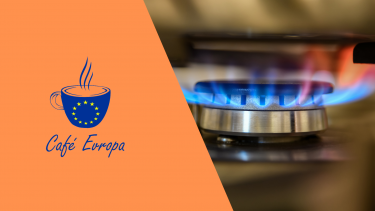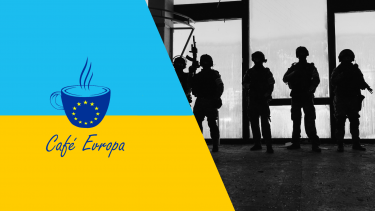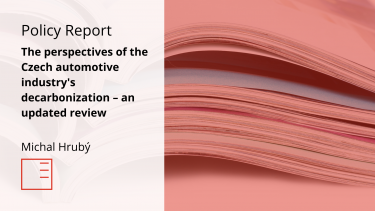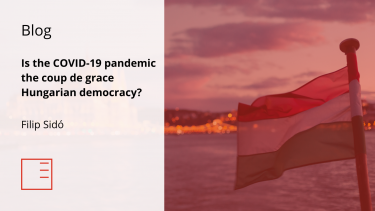INVITATION: Café Evropa online: The future of European energy - how to ensure stable and clean energy sources without Russia?
We would like to invite you to the Café Evropa debate on 21 March at 17:30 on the topic "The future of European energy - how to ensure stable and clean energy sources without Russia?". The Russian invasion of Ukraine has, among other things, further fuelled the question of energy security in the Czech Republic and the EU and the future of energy in our country. The current security situation points to the need to diversify energy sources as soon as possible, i.e. to secure energy supplies from different regions and countries in order to avoid excessive dependence on Russia. There are also views in the public debate that coal extraction could be temporarily increased, which would enable some countries to cover any shortfalls in resources. Is a complete or even partial halt of Russian gas supplies to the Czech Republic and the European Union a realistic option? What impact would this have on our energy security? How much further increase in energy prices can we expect in this case? How should EU countries react and help households and industry cope with the expected increase? Could a possible temporary increase in coal extraction mean a return to fossil fuels and the end of the EU's climate ambitions? Or could the current problematic situation further accelerate the energy transition?
Show moreNavigating the Indo-Pacific: Dealing with Geopolitical and Security Shifts in the Region
We would like to invite you to the in person debate called "Navigating the Indo-Pacific: Dealing with Geopolitical and Security Shifts in the Region" which will be held at EUROPEUM Institute for European Policy, Staroměstké náměstí 4/1, Prague (Room "Minuta") on Friday, March 18 at 15:00.
Show more
Report: EU – Pacific Talks: H2 – Hydrogen Hype
David Plhák wrote a report from the EU - Pacific Talks debate on: H2 - Hydrogen Hype. The debate outlined the current state of the hydrogen economy and its role in the EU, Czech Republic and Japan's efforts to achieve climate neutrality and reduce energy dependence on hydrogen.
Show more PDFJob offer: Director of EUROPEUM Institute for European Policy
EUROPEUM Institute for European Policy, the leading think-tank on European policy within the Czech Republic with offices in Prague and Brussels, is looking for a Director. For more information, including requirements, please see the attached PDF.
Show more PDFPolicy Paper: EU’s Transparency and Targeting of Political Advertising: Good Intentions but Clarifications and Amendments still Needed
A Policy Paper on transparency and targeting of political advertising in the EU was produced during a study visit to the Brussels office of Think Visegrad. The author of the paper, Karolína Klingová, focuses on the development of information technologies, including social media platforms with the possibility of micro-targeted campaigns, which have rapidly changed the concept of political communication and electoral campaigning.
Show more PDFDeník N: The Green Deal is more important than ever, says the Decarbonising Automotive Transport conference
Our researcher Michal Hrubý attended the conference on Decarbonisation of Automotive Transport where he took part in the debate. We are on the threshold of a decision about the future of Czech car transport. Demand for electromobility is growing exponentially globally, as is the development of battery technology. In the future, these could become value-added products that will kick-start our economy and return the Czech Republic to a leading position in the investment environment. According to representatives of the European Parliament, the state administration, the automotive industry and independent experts on electromobility, it is now important for the Czech Republic to leave the scepticism of change behind and start educating and preparing for the decarbonisation of automotive transport. Not only for the environmental impact, but especially for the future competitiveness of the sector. This was stated in a debate at the Decarbonisation of Automotive Transport conference organised by EUROPEUM Institute for European Policy on Tuesday 1 March.
Show more
INVITATION: Café Evropa online: Russian aggression in Ukraine - can we stop Putin?
We would like to invite you to the next debate within the Café Evropa series, this time on the topic: " Café Evropa: Russian aggression in Ukraine - can we stop Putin?". The debate will take place on 2 March at 17:30. What will be the impact of the joint actions of the EU and NATO countries on Russia? Are the arms supplies sufficient or should direct military support be included? Can economic sanctions help Ukraine in any way now, or is this more of a step that will only become apparent in the longer term? Is the collapse of the rouble and the entire Russian market realistic? How can China influence Russia's current economic situation? And how will these sanctions be felt by the Russian population?
Show morePOLICY REPORT: The Perspectives of the Czech Automotive Industry’s Decarbonization - an updated review
Michal Hrubý, a research fellow from the EUROPEUM Institute for European Policy, has written a report on the development of the Czech automotive industry with regards to electromobility. In his research, he discusses its current state and possible decarbonisation in relation to transport emissions. The focus is mainly on the market for chargeable electric vehicles and two areas of interest - 1) decarbonisation of the transport sector and 2) maintaining the competitiveness of the Czech automotive industry.
Show moreBLOG: Is the COVID-19 pandemic the coup de grace Hungarian democracy?
Intern Filip Sidó wrote a blog on "Is the COVID-19 pandemic a coup in Hungarian democracy?" in which he discusses the newly declared state of emergency in Hungary, which allows Prime Minister Orbán to rule through decrees that essentially give him unlimited power.
Show more PDFPolicy Brief: Responding to China's connectivity agenda in EU's Neighborhood: a Central European perspective
A Policy Brief on the appropriate response of Central European countries to China's expansion in the EU neighbourhood was produced during a study visit to the Brussels office of the Think Visegrad platform. The author of the paper, Jakub Jakóbowski, focuses on the possibilities of engaging Central Europe in the EU's global connectivity agenda, implemented under the Global Gateway initiative. He highlights links with the Western Balkans and the Eastern Partnership as an indispensable element of Central European connectivity.
Show moreStaroměstské náměstí 4/1
Prague 1 - Staré Město
110 00
tel.: +420 212 246 552
email: europeum@europeum.org
https://www.europeum.org









